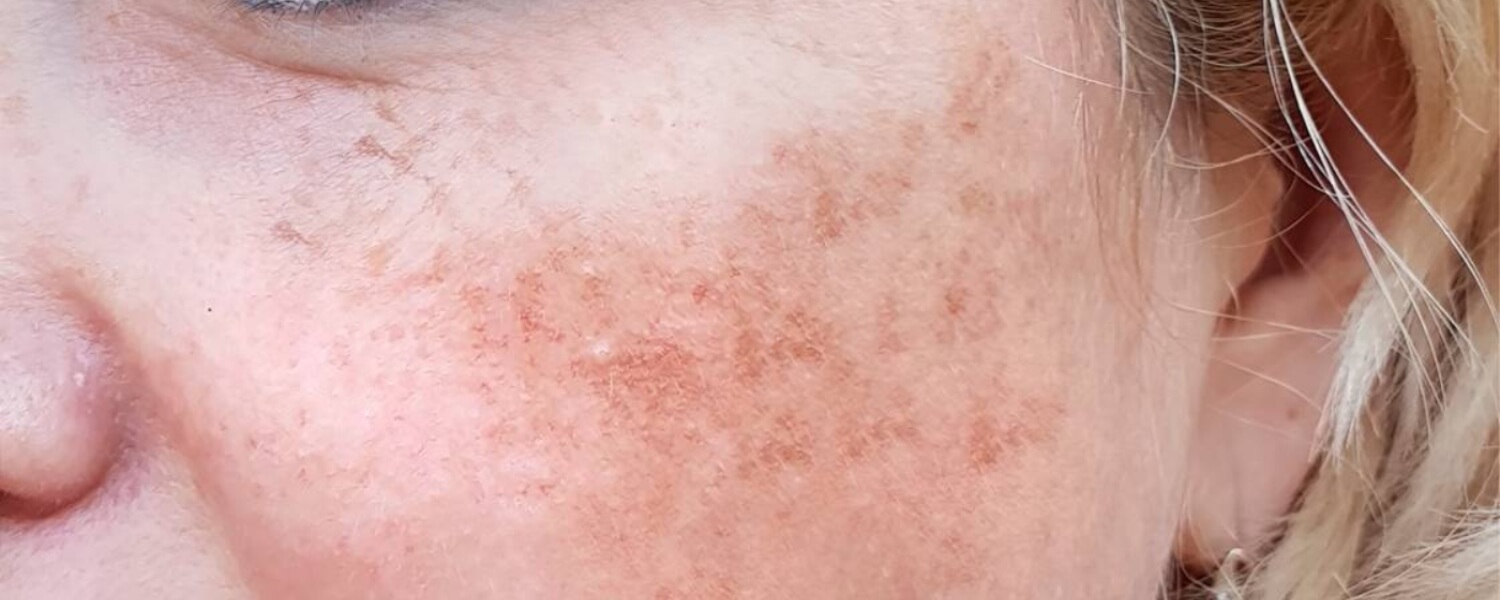Intro – Melasma is a common skin condition characterised by the development of dark, irregular patches of hyperpigmentation on the skin, typically on the face. It primarily affects women, particularly those with darker skin tones, and is often associated with hormonal changes and sun exposure. Melasma is sometimes referred to as the “mask of pregnancy” because it commonly occurs during pregnancy.
Causes
- Pregnancy: Melasma can develop or worsen during pregnancy due to hormonal changes. This is known as chloasma or the “mask of pregnancy.”
- Birth Control Pills: The use of birth control pills or hormone replacement therapy can trigger melasma in some individuals due to hormonal changes.
- Hormone-Related Medical Conditions: Certain medical conditions, such as polycystic ovary syndrome (PCOS), can lead to hormonal imbalances and increase the risk of melasma.
- Ethnicity and Skin Type: Individuals with darker skin tones, especially those of Hispanic, Asian, or Middle Eastern descent, are more prone to melasma.
- Certain Medications and Treatments: Some medications, such as certain anti-epileptic drugs and photosensitising medications, can trigger melasma. Certain laser treatments or chemical peels can also exacerbate melasma if not performed correctly.


